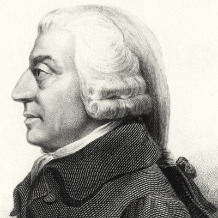Critical Theories of International Political Economy
Module Description
The module introduces critical theories of International Political Economy, focusing on Adam Smith’s contribution to classical political economy, Marx’s critique of political economy, neo-classical economics, Keynesianism, neo-liberalism, and contemporary Marxist critique of the state. Throughout the module, we will ask about the political in political economy, and the economic in political economy, and underlying notions of capital, state, class, value, production, exchange, economic purpose.
Module Objectives
On completion of this module, students should be able to distinguish between distinct critical theories of international political economy, explain the difference between classical political economy, Marx’s critique of political economy, neo-classical economics, and neo-liberalism.
Preliminary Reading
D. Dowd, Capitalism and its Economics, Pluto, 2000
R. L. Heilbronner, The Worldly Philosophers, 7th ed. Penguin 2000 (or earlier).
E K Hunt and H Sherman, Economics: an Introduction to Traditional and Radical Views, Part I, 4th ed. Harper and Row, 1991.
J Robinson, Economic Philosophy, Penguin, 1964.
W K Tabb, Reconstructing Political Economy, Routledge 1999.
Assessment
One essay of 4000 words (100% of total mark).
Every year our students' feedback helps us to improve our modules
“The tutor’s explanations were excellent, the range was good and followed a clear trajectory. This was a well-defined and challenging module.”

